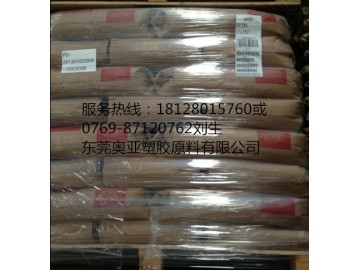| Mechanical properties | dry / cond | Unit | Test Standard | |
| Tensile Modulus | 4200 / - | MPa | ISO 527-1/-2 | |
| Stress at break | 85 / - | MPa | ISO 527-1/-2 | |
| Strain at break | 9 / - | % | ISO 527-1/-2 | |
| Flexural Modulus | 3600 / - | MPa | ISO 178 | |
| Charpy notched impact strength | ISO 179/1eA | |||
| 23°C | 12 / - | kJ/m² | ||
| -40°C | 4 / - | kJ/m² | ||
| Izod notched impact strength | ISO 180/1A | |||
| 23°C | 13 / - | kJ/m² | ||
| -40°C | 7 / - | kJ/m² | ||
| Hardness, Rockwell, M-scale | 70 / - | - | ISO 2039-2 | |
| Hardness, Rockwell, R-scale | 110 / - | - | ISO 2039-2 |
| Thermal properties | dry / cond | Unit | Test Standard | |
| Melting temperature, 10°C/min | 263 / * | °C | ISO 11357-1/-3 | |
| Temp. of deflection under load | ISO 75-1/-2 | |||
| 1.8 MPa | 195 / * | °C | ||
| 0.45 MPa | 246 / * | °C | ||
| Coeff. of linear therm. expansion, parallel | 50 / * | E-6/K | ISO 11359-1/-2 | |
| Coeff. of linear therm. expansion, normal | 118 / * | E-6/K | ISO 11359-1/-2 | |
| RTI, electrical | UL 746B | |||
| 0.8mm | 120 / * | °C | ||
| 1.5mm | 120 / * | °C | ||
| 3mm | 120 | °C | ||
| RTI, impact | UL 746B | |||
| 0.8mm | 65 | °C | ||
| 1.5mm | 95 / * | °C | ||
| 3mm | 105 | °C | ||
| RTI, strength | UL 746B | |||
| 0.8mm | 85 | °C | ||
| 1.5mm | 105 / * | °C | ||
| 3mm | 105 | °C |
| Flammability | dry / cond | Unit | Test Standard | |
| Burning Behav. at 1.5mm nom. thickn. | HB / * | class | IEC 60695-11-10 | |
| Thickness tested | 1.5 / * | mm | IEC 60695-11-10 | |
| Burning Behav. at thickness h | HB / * | class | IEC 60695-11-10 | |
| Thickness tested | 0.8 / * | mm | IEC 60695-11-10 |
| Electrical properties | dry / cond | Unit | Test Standard | |
| Comparative tracking index | 580 / - | - | IEC 60112 |
| Other properties | dry / cond | Unit | Test Standard | |
| Density | 1190 / - | kg/m³ | ISO 1183 |
Chemical Media Resistance
| Acids | |
 |
Acetic Acid (5% by mass) (23°C) |
 |
Citric Acid solution (10% by mass) (23°C) |
 |
Lactic Acid (10% by mass) (23°C) |
 |
Hydrochloric Acid (36% by mass) (23°C) |
 |
Nitric Acid (40% by mass) (23°C) |
 |
Sulfuric Acid (38% by mass) (23°C) |
 |
Sulfuric Acid (5% by mass) (23°C) |
 |
Chromic Acid solution (40% by mass) (23°C) |
| Bases | |
 |
Sodium Hydroxide solution (35% by mass) (23°C) |
 |
Sodium Hydroxide solution (1% by mass) (23°C) |
 |
Ammonium Hydroxide solution (10% by mass) (23°C) |
| Alcohols | |
 |
Isopropyl alcohol (23°C) |
 |
Methanol (23°C) |
 |
Ethanol (23°C) |
| Hydrocarbons | |
 |
n-Hexane (23°C) |
 |
Toluene (23°C) |
 |
iso-Octane (23°C) |
| Ketones | |
 |
Acetone (23°C) |
| Ethers | |
 |
Diethyl ether (23°C) |
| Mineral oils | |
 |
SAE 10W40 multigrade motor oil (23°C) |
 |
SAE 10W40 multigrade motor oil (130°C) |
 |
SAE 80/90 hypoid-gear oil (130°C) |
 |
Insulating Oil (23°C) |
| Standard Fuels | |
 |
ISO 1817 Liquid 1 - E5 (60°C) |
 |
ISO 1817 Liquid 2 - M15E4 (60°C) |
 |
ISO 1817 Liquid 3 - M3E7 (60°C) |
 |
ISO 1817 Liquid 4 - M15 (60°C) |
 |
Standard fuel without alcohol (pref. ISO 1817 Liquid C) (23°C) |
 |
Standard fuel with alcohol (pref. ISO 1817 Liquid 4) (23°C) |
 |
Diesel fuel (pref. ISO 1817 Liquid F) (23°C) |
 |
Diesel fuel (pref. ISO 1817 Liquid F) (90°C) |
 |
Diesel fuel (pref. ISO 1817 Liquid F) (>90°C) |
| Salt solutions | |
 |
Sodium Chloride solution (10% by mass) (23°C) |
 |
Sodium Hypochlorite solution (10% by mass) (23°C) |
 |
Sodium Carbonate solution (20% by mass) (23°C) |
 |
Sodium Carbonate solution (2% by mass) (23°C) |
 |
Zinc Chloride solution (50% by mass) (23°C) |
| Other | |
 |
Ethyl Acetate (23°C) |
 |
Hydrogen peroxide (23°C) |
 |
DOT No. 4 Brake fluid (130°C) |
 |
Ethylene Glycol (50% by mass) in water (108°C) |
 |
1% nonylphenoxy-polyethyleneoxy ethanol in water (23°C) |
 |
50% Oleic acid + 50% Olive Oil (23°C) |
 |
Water (23°C) |
 |
Water (90°C) |
 |
Phenol solution (5% by mass) (23°C) |
Symbols used:
 possibly resistant
possibly resistantDefined as: Supplier has sufficient indication that contact with chemical can be potentially accepted under the intended use conditions and expected service life. Criteria for assessment have to be indicated (e.g. surface aspect, volume change, property change).
 not recommended - see explanation
not recommended - see explanationDefined as: Not recommended for general use. However, short-term exposure under certain restricted conditions could be acceptable (e.g. fast cleaning with thorough rinsing, spills, wiping, vapor exposure).















 簡繁切換
簡繁切換